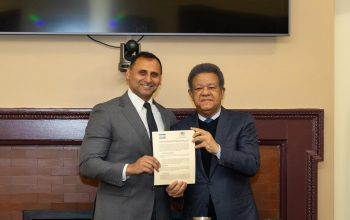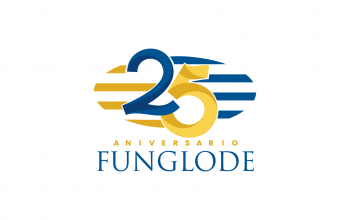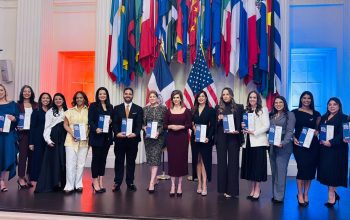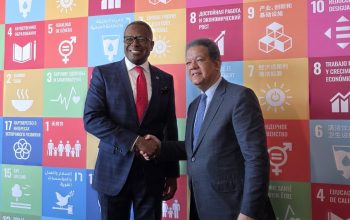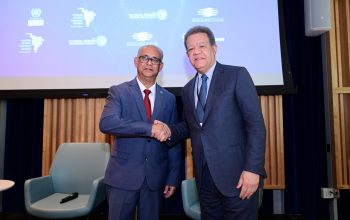news
Director of the Global Environment Facility Discusses how the Organization acts as a Trigger for Further Financing of the Green Economy
June 1, 2015
On June 1, the GFDD Global Roundtables welcomed Dr. Gustavo Fonseca, Director of Programs at the Global Environment Facility (GEF), for a session looking at the importance of public sector climate finance and the role of civil society in reducing emissions and helping communities to adapt.
GFDD Executive Director Natasha Despotovic opened the session by reviewing Dr. Fonseca’s background as an environmental expert. Fonseca explained that his work
at the GEF required him to have “a bird’s eye view” of the organization’s portfolio given that it “deals with all the international dimensions of the global environment, including biodiversity, land management, climate change mitigation and adaptation”. With an existence dating back to the creation of the Earth Summit in Rio in the early 90s, Fonseca
stressed that the role of the GEF had expanded with the creation of new conventions. He pointed to the diverse functions of the GEF ranging from its appointment as the financial mechanisms for the UN Convention to Combat Desertification and the Minamata Convention (seeking to eliminate Mercury Pollution), to providing a management platform for nations to deal with transboundary water issues.
Looking at the evolution of the GEF, Fonseca explained that the foundation had started as a private organization. Having encountered issues with funding, this led the GEF to transform into a partnership for international cooperations with 183 countries (both recipient/developing countries and developed/donor countries) working together with international
institutions, civil society organizations and the private sector, to provide resources to address global environmental issues.
Natasha Despotovic praised the GEF for providing $13.5bn in grants and leveraging $65bn since its creation with an initial fund of $1bn. Fonseca explained that GEF was instrumental at providing initial resources for investment in new technology, to de-risk certain types of investment where the private sector is reticent to get involved and
thereby act as a trigger for further financing and transitioning to clean technology and a green economy.
The session also
focused on the funding strategies and process of the organization that were required to ”convince donors to think global and act local”, as well as the expectations of the GEF with regards to the climate change conference due to take place in Paris in December 2015. Fonseca emphasized that he saw the meeting as a “light at the end of the tunnel” with a series of comments due to be brought by developing countries. He stressed that finance was the
grease that “keeps the wheels spinning at these negotiations”. Fonseca concluded that making investment take a greener path would be the key paradigm shift to affect a successful transition to sustainable development.
About Dr. Gustavo Fonseca
An expert on environmental protection issues, Dr. Fonseca started his career as a tenured Professor at the Federal University of Minas Gerais (UFMG) in Brazil. He was later
appointed the first Executive Director of the Center for Applied Biodiversity before becoming the Chief Conservation and Science Officer of Conservation International. Dr. Fonseca has published close to 150 articles and books, including 15 times in Science and four times in Nature. He has received the Oliver Austin Award of the University of Florida’s State Museum for outstanding research in the natural sciences and the Golden Ark Award, an official order of the Dutch
government, the highest environment award of the Netherlands.
About the Global Roundtable
In close association with the United Nations, the Mission of the Dominican Republic to the UN, GFDD organizes regular meetings with UN Ambassadors and other prominent figures in the international community in an effort to spread the news, knowledge and understanding of other countries, global issues and work of different United Nations bodies to its
audience in the Dominican Republic, the US and around the world.
The regular series GFDD Global Roundtable is also a part of GFDD’s program to support the work of the United Nations and, as a non-governmental institution affiliated to it, contribute to the visibility and understanding of its work.
Related Links:
www.gfddglobalroundtable.org


